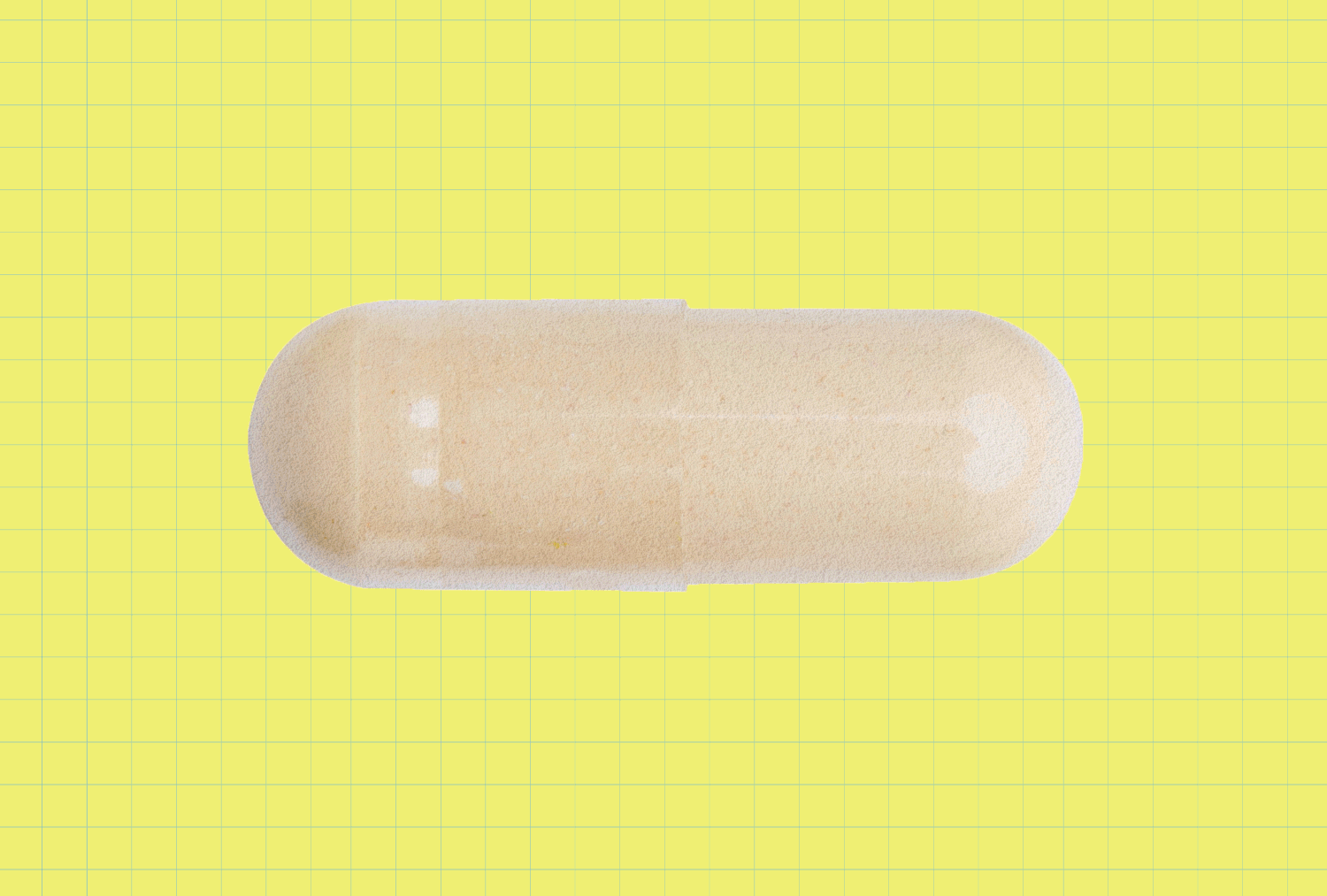Blog
4 Supplement Pairs to Avoid—and 4 That Work Well Together

- Millions of us take dietary supplements to enhance our health.
- Some supplement combinations are harmless and even beneficial.
- Others may impair nutrient absorption or cause dangerous interactions.
Taking dietary supplements can be beneficial for some people. But there’s a catch to taking them that many of us overlook. Several popular supplements can interact with each other, and that can make or break their benefits. For instance, taking certain supplements together can reduce their effectiveness or, worse, negatively affect your health. Conversely, other supplements enhance each other’s absorption. So, they may work better together than when taken separately.
To get the most out of your supplements, we asked registered dietitians which supplements clash and which team up for better results, plus how to use them wisely for your healthiest self. Here’s what they told us.
Understanding Supplement Interactions
Supplements are designed to support your health. But their effects aren’t always straightforward. For example, some nutrients compete for absorption. So, if one nutrient in your supplement inhibits the absorption of another, you may be missing out on the very nutrients your supplement is intended to provide. On the opposite end of the spectrum, some nutrients depend on others to work effectively, potentially enhancing each other’s effects when taken together. Then, certain herbal supplements can be outright dangerous when combined.
Supplements That Should Not Be Taken Together
Calcium and Magnesium
Calcium and magnesium are both essential minerals. However, when taken simultaneously in high doses, they can compete for absorption in your gastrointestinal tract.
Taking large quantities of calcium, in particular, can throw off the balance between these minerals. Since food doesn’t contain large doses of calcium, you probably don’t have to worry about calcium from food. However, excessive calcium intake can be an issue with supplements, which often contain large doses of calcium. If you take calcium and magnesium in supplement form, take them at different times of the day to maximize absorption. And try not to exceed the Daily Value of 1,300 milligrams of calcium and 420 mg of magnesium.
Calcium and Iron
“Iron and calcium should not be taken together because they compete for absorption in the digestive tract, which can significantly reduce the amount of iron your body is able to absorb,” says Whitney Stuart, M.S., RDN. “[This is] especially important for those addressing iron deficiency or anemia.” The National Institutes of Health recommends taking iron supplements on an empty stomach. They also suggest refraining from consuming any calcium supplements, antacids or dairy products for at least two hours after taking iron supplements. Since the optimal amount of iron varies by age and sex, speak with your health care provider to find out your ideal dose.
Zinc and Copper
Zinc is a popular supplement for improving immune health. However, taking too much could lead to other health issues. “If you consistently take large amounts of zinc, it can interfere with copper absorption and potentially lead to a deficiency over time,” says Deena Goldman, RD. Large amounts of zinc can trigger the release of a gut protein that tells your body to excrete copper. So, you may poop out some copper without fully absorbing it. That may result in anemia, weakened immunity and neurological problems.
“When the ratio is balanced, the competition is accounted for,” says Adina Castro, M.S., RDN. Fortunately, many multivitamin formulas and immunity blends combine these nutrients correctly, she adds. To be sure, check the Nutrition Facts label to make sure yours doesn’t exceed the DV for these minerals (11 mg for zinc and 0.9 mg for copper).
Ginger and Ginkgo Biloba
Both ginger supplements and ginkgo biloba can thin your blood. This may not be a concern if you only take one of these. However, taking them together could increase the risk of excessive bleeding, especially if you’re already on blood-thinning medications or have a health condition that affects blood clotting. Either way, herbs that increase bleeding risk are serious business. If you’re considering or are already taking one of these supplements, be sure to speak to your health care provider to make sure they’re safe for you.
Supplements That May Be Taken Together
Vitamin D and Vitamin K
Vitamin D and vitamin K both play key roles in promoting bone health. Vitamin D helps increase calcium absorption from the intestine, while vitamin K is present in bone tissue where it helps regulate bone turnover., Even though these vitamins complement each other, you don’t need to take them together. But if it’s more convenient, feel free to do so. The most important thing to know is they each require some fat for absorption, so take them with a fat-containing meal.
Magnesium and Vitamin D
Magnesium is involved in more than 300 enzymatic reactions in your body. Because this mineral helps your body activate and metabolize vitamin D, it plays a critical role in bone health. As a result, vitamin D’s benefits may be limited if you don’t consume enough magnesium. According to the National Institutes of Health, that’s an issue for lots of us. In fact, nearly half of Americans don’t eat enough magnesium-rich foods to provide the daily 420-mg requirement. In addition, roughly 20% are low in vitamin D, as they may not consume the 20-mcg DV, or they may not get enough sunlight for their bodies to produce this vitamin. So, many of us could benefit from supplementing these nutrients. Conveniently, many multivitamin-mineral supplements contain both of them.
Omega-3 Fatty Acids and Vitamin E
Taking omega-3 fatty acids and vitamin E together may help your body fight oxidative stress, which is linked to cell damage and aging. One study found this combination significantly increased total antioxidant capacity, which plays an important role in protecting cells and supporting overall health. It also found that pairing omega-3s with vitamin E may increase the body’s production of a blood pressure-regulating compound called nitric oxide., However, both vitamin E and omega-3 supplements may increase bleeding risk. If you have concerns, be sure to consult with your healthcare provider.
Iron and Vitamin C
If you follow a vegetarian or vegan eating plan or don’t eat much meat, you may not be consuming or absorbing enough iron (the DV is 18 mg). That’s where vitamin C comes in. “Vitamin C significantly increases the absorption of iron, especially non-heme iron found in plant-based foods and supplements,” says Nicole Branch, M.S., RD. “Pairing them can help improve your iron status more effectively.” This synergy may also help protect against anemia or low iron levels. That said, you don’t have to take a vitamin C supplement to get the 90 mg you need each day. Washing down your iron supplement with a glass of orange juice can also do the trick.
Guidelines for Supplement Use
While supplements can bridge nutritional gaps, they should complement, not replace, a nutrient-dense diet. Whole foods provide a balance of vitamins, minerals and other bioactive compounds that supplements alone cannot offer. Aim to get most of your nutrients from a balanced diet rich in fruits, vegetables, lean proteins and whole grains.
If you do choose to take a supplement, stick to the dosage guidelines on your supplement’s labels, as excessive intake can sometimes be harmful. And don’t assume that natural means safe. Supplements made from natural substances can still interact with other nutrients, herbs and medications. So, talk to your health care provider to make sure your supplement routine is right for you.
Our Expert Take
Combining supplements can be a slippery slope. While some supplements may cancel out each other’s effects or cause dangerous interactions, other combinations are completely safe or even advantageous. Combinations to avoid include calcium and magnesium, calcium and iron, zinc and copper, and ginger and ginkgo biloba. However, taking vitamin D with vitamin K, or vitamin D with magnesium, is perfectly fine. Taking omega-3 fats with vitamin E or pairing iron with vitamin C may even be beneficial.
In the end, the key to safe and effective supplement use is knowledge. Being aware of how supplements interact can ensure you’re getting the most from your regimen while avoiding potential pitfalls. Before making any significant changes, consult with your health care provider to tailor an approach that supports your unique needs. A little guidance goes a long way in creating a supplement routine that helps, not hinders, your path to better health.












